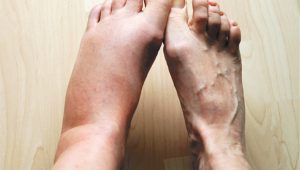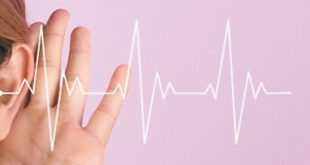By Dr. Joseph Freedman MD, MBA


When fluid builds up around the heart, it causes the heart to pump inefficiently. This is known as Congestive heart failure (CHF). Congestive heart failure is a progressive condition that’s chronic, and it affects the heart muscles along with the entire systemic system. Heart failure affects nearly 6 million adults in the United States.
The American Heart Association describes the various types of heart failure as the following:
Left-sided Heart Failure: The heart’s pumping action moves oxygen-rich blood as it travels from the lungs to the left atrium, then on to the left ventricle, which pumps it to the rest of the body. The left ventricle supplies most of the heart’s pumping power, so it’s larger than the other chambers and essential for normal function. In left-sided or left ventricular (LV) heart failure, the left side of the heart must work harder to pump the same amount of blood.
There are two types of left-sided heart failure. Drug treatments are different for the two types.
• Heart failure with reduced ejection fraction (HFrEF), also called systolic failure: The left ventricle loses its ability to contract normally. The heart can’t pump with enough force to push enough blood into circulation.
• Heart failure with preserved ejection fraction (HFpEF), also called diastolic failure (or diastolic dysfunction): The left ventricle loses its ability to relax normally (because the muscle has become stiff). The heart can’t properly fill with blood during the resting period between each beat.
A. Right-sided heart failure (Back-ups in the area that collects “used” blood)
B. Left-sided heart failure (Failure to properly pump out blood to the body)
C. Congestive heart failure (Fluid backs up into the lungs and tissues)
Right-sided heart failure
The heart’s pumping action moves “used” blood that returns to the heart through the veins through the right atrium into the right ventricle. The right ventricle then pumps the blood back out of the heart into the lungs to be replenished with oxygen.
Right-sided or right ventricular (RV) heart failure usually occurs as a result of left-sided failure. When the left ventricle fails, increased fluid pressure is, in effect, transferred back through the lungs, ultimately damaging the heart’s right side. When the right side loses pumping power, blood backs up in the body’s veins. This usually causes swelling or congestion in the legs, ankles and swelling within the abdomen such as the GI tract and liver (causing ascites).
Congestive heart failure.
Congestive heart failure (CHF) is a type of heart failure which requires seeking timely medical attention, although sometimes the two terms are used interchangeably.
As blood flow out of the heart slows, blood returning to the heart through the veins backs up, causing congestion in the body’s tissues. Often swelling (edema) results. Most often there’s swelling in the legs and ankles, but it can happen in other parts of the body, too.
Sometimes fluid collects in the lungs and interferes with breathing, causing shortness of breath, especially when a person is lying down. This is called pulmonary edema and if left untreated can cause respiratory distress.
Heart failure also affects the kidneys’ ability to dispose of sodium and water. This retained water also increases swelling in the body’s tissues (edema).1
Treatment
Heart failure is a life-long chronic condition; however, multiple treatment modalities are available depending on the stage of the disease. Typically, cardiologists will use several combined medications like beta blockers, diuretics, and Ace inhibitors to name a few. There are also surgical procedures like heart valve replacements, implantable defibrillators, and coronary bypass surgery. In end-stage cases, inotropic medications can be given to keep a patient’s heart pumping adequately and to maintain an even blood pressure.
At the Cardiac Care Group in Cape Coral, they provide a wide range of services that focus on the prevention, prompt diagnosis, and state-of-the-art treatment of cardiovascular disease. They pride themselves on being an exceptional practice where patients come first. All of their physicians and medical staff are highly trained professionals, maintaining the highest level of accreditation in cardiology to address the special needs of those they are privileged to serve.
Joseph Freedman, M.D.
Dr. Freedman brings many years of experience as a cutting edge cardiologist specializing in the prevention, diagnosis, and treatment of all cardiac disease. He trained at the prestigious Cleveland Clinic, continually ranked #1 in Cardiovascular Care, where he focused on cardiac imaging. He achieved five board certifications in Internal Medicine, Cardiology, Comprehensive Adult ECHO, Nuclear Cardiology and Cardiac CT. During his tenure as the lead noninvasive cardiologist at Florida Medical Center in Ft. Lauderdale, he helped lead the hospital to achieve Level 5 chest pain certification, the highest designation of cardiac excellence.
CARDIAC CARE GROUP, LLC
3208 Chiquita Blvd S., Suite 110, Cape Coral, FL 33914
(239) 574-8463
www.flccg.com
Reference:
1. The American Heart Association, “Types of Heart Failure,”
AHA.org, Dallas, TX, May 2017
 Southwest Florida's Health and Wellness Magazine Health and Wellness Articles
Southwest Florida's Health and Wellness Magazine Health and Wellness Articles

